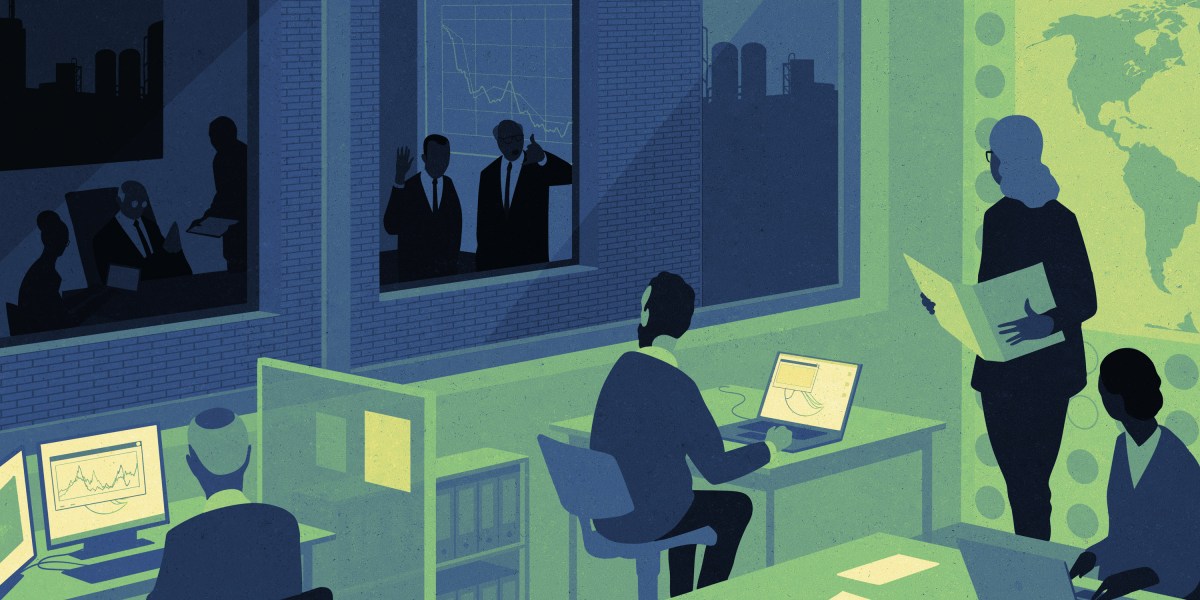Others give the group credit score for serving to persuade a rising share of the personal sector to take significant steps to deal with emissions. SBTi says corporations with targets that it’s accepted are usually lowering their direct emissions by 12% annually, properly forward of what the group requires. The goal-setting has had a wider impact on the sphere as properly, serving to to ratchet up the requirements of different corporations and company standard-setting teams, observers say.
Selecting pathways
The start line for SBTi’s strategy is what’s referred to as the world’s “carbon finances.” The UN Intergovernmental Panel on Local weather Change decided that collectively, nations can solely afford to emit one other 500 billion metric tons of carbon dioxide over roughly the subsequent three many years and nonetheless have a 50-50 shot at holding warming to 1.5 ºC.
SBTi allocates shares of that carbon finances to sectors and corporations, which then have a number of decisions in setting targets. Two-thirds of corporations have chosen the best methodology, committing to per-year emissions cuts by means of 2030. To be in keeping with 1.5 ºC targets, SBTi requires corporations to plan to scale back emissions throughout their provide chains by at the least 4.2% yearly. (Some corporations, like Tyson Meals, Cargill, and McDonald’s, opted for a 2 ºC purpose, however SBTi has lately stopped approving plans for this looser goal.)
For essentially the most half, the personal sector isn’t legally required to drive down its emissions. However corporations face rising strain from buyers, clients, activists, and policymakers to point out that they’re taking emissions significantly and addressing rising bottom-line dangers from local weather change itself. Corporations that safe SBTi’s approval can assert of their boardrooms, product advertising and marketing, and investor communications that they’re doing each.
SBTi has developed a course of for measuring an organization’s baseline emissions primarily based on work by Greenhouse Fuel Protocol, a comparable partnership between NGOs and the personal sector that units requirements for reporting emissions after which indicators off on a agency’s timeline for lowering them. SBTi stresses that it doesn’t consider or endorse the particular methods corporations use to get to the goal. Nevertheless, it does exert some management over the selection of these instruments, as in prohibiting using offsets.
Corporations may also select to observe a sector-specific pathway, which tends to be extra enticing for industries resembling aviation, cement, and aluminum, that are significantly tough to scrub up with right now’s applied sciences. In that case, SBTi assigns shares of the carbon finances to sectors and the businesses inside them on the idea of scientific literature, market information, and steering from business specialists.
The maritime business, for instance, will get a complete finances of 12 to 16 billion tons of carbon dioxide to emit till 2050. SBTi provides the sector extra time to decarbonize than different industries as a result of it’s anticipated that strategies for chopping emissions from delivery, together with switching to low-emission fuels like ammonia and hydrogen, will take some time to scale up.
SBTi has additionally developed long-term net-zero targets, with the purpose that by 2050, corporations will emit solely as a lot greenhouse gasoline as they will reliably and durably take away from the ambiance. They’ve accepted such targets for round 200 corporations, together with Colgate Palmolive, Etsy, and H&M.

